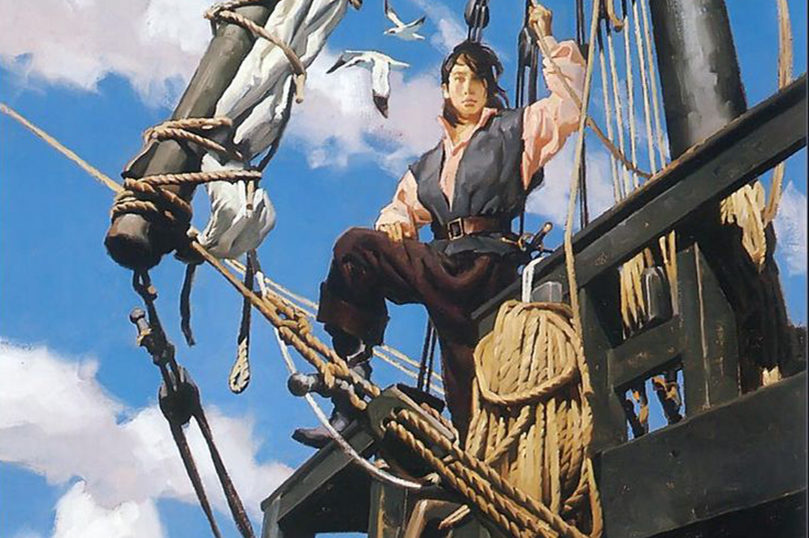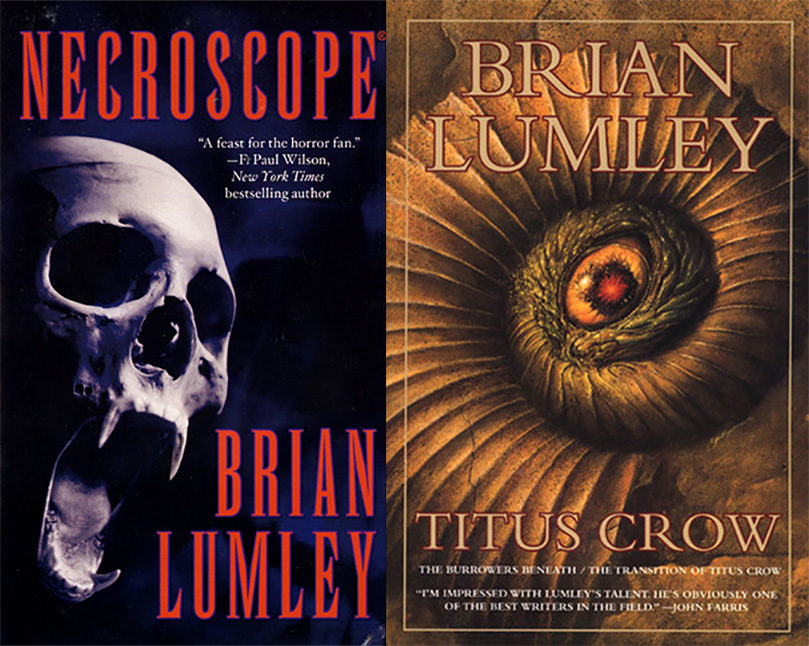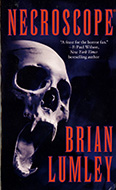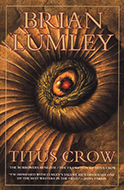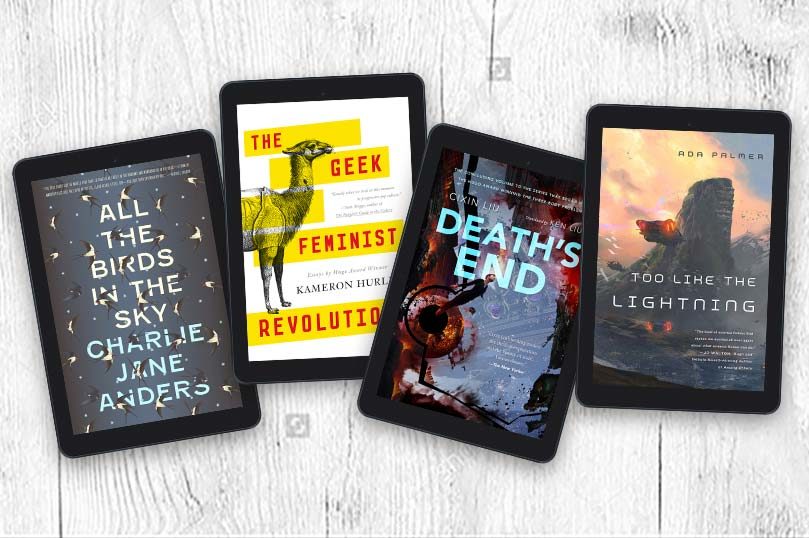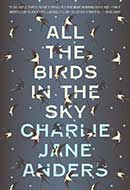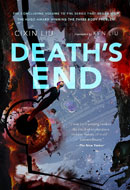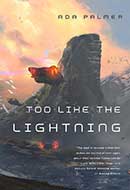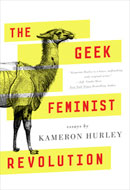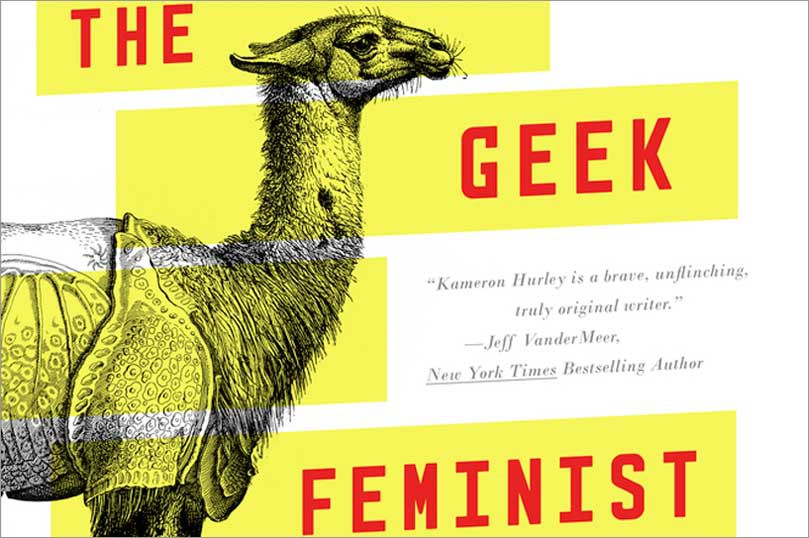Being the boss of a ship, whether on the high seas or in space, is a challenging job. You have to balance the personalities of your crew, your goals (be they military, trade, etc.), and the inherent dangers of the environment. Oftentimes, being a woman and the one in charge can add yet another difficulty to the job. But the #FearlessWomen in these books can handle it, because they’re serious badasses. Here are some of our favorite female captains in science fiction and fantasy. Who’s on your list?
Captain Josette Dupre from By Fire Above by Robyn Bennis
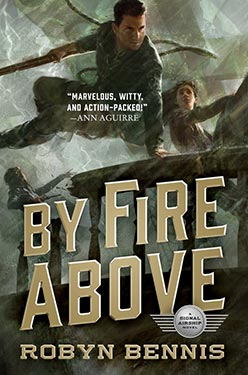 When you’re an airship captain, you can’t be afraid of heights. Captain Josette Dupre, the first female airship captain in the Corps, isn’t worried about falling. She’s more worried about a bullet in the back. And while she proved herself to the world in Robyn Bennis’s debut The Guns Above, that doesn’t mean the prejudice against her is going to instantly disappear. To constantly combat it, Captain Dupre must always be the best of the best. But when her hometown of Durum is occupied by the enemy, and her mother taken as a prisoner of war, all bets are off.
When you’re an airship captain, you can’t be afraid of heights. Captain Josette Dupre, the first female airship captain in the Corps, isn’t worried about falling. She’s more worried about a bullet in the back. And while she proved herself to the world in Robyn Bennis’s debut The Guns Above, that doesn’t mean the prejudice against her is going to instantly disappear. To constantly combat it, Captain Dupre must always be the best of the best. But when her hometown of Durum is occupied by the enemy, and her mother taken as a prisoner of war, all bets are off.
Captain Leela from The Ballad of Beta-2 by Samuel R. Delaney
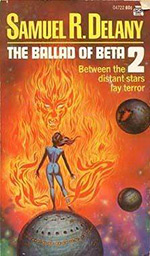 First published in 1965, Delaney’s short novel is framed by a graduate student’s search for the anthropological and historical meaning behind a short poem left by the Star Folk, who had left Earth in generation ships to colonize the stars. But it’s the story in between the frame that really caught our imagination–the story of Captain Leela, the alien she meets in deep space who gets her pregnant, and the Judges who declared her a “Misfit” and condemned her to death. And, of course, the Wonder Child that resulted from Leela’s pregnancy. We can only go along for the ride with Joneny, the student, as he discovers a story packed with wonder and horror.
First published in 1965, Delaney’s short novel is framed by a graduate student’s search for the anthropological and historical meaning behind a short poem left by the Star Folk, who had left Earth in generation ships to colonize the stars. But it’s the story in between the frame that really caught our imagination–the story of Captain Leela, the alien she meets in deep space who gets her pregnant, and the Judges who declared her a “Misfit” and condemned her to death. And, of course, the Wonder Child that resulted from Leela’s pregnancy. We can only go along for the ride with Joneny, the student, as he discovers a story packed with wonder and horror.
Anne Bonney from The Queen of Swords by R. S. Belcher
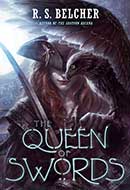 The third book in Belcher’s Golgotha series, The Queen of Swords is the first to take place in the wider world, rather than in the confines of the small mining town Golgotha. In it, we follow the twinned narratives of the world class assassin Maude Stapleton and her several times great grandmother, the pirate queen Anne Bonney. Bonney’s journey serves as a guide for her descendant, but more importantly for readers, she’s a badass pirate queen who breaks out of prison and treks across Africa in search of treasure. Anne Bonney is the pirate and adventurer we wish we could be some day.
The third book in Belcher’s Golgotha series, The Queen of Swords is the first to take place in the wider world, rather than in the confines of the small mining town Golgotha. In it, we follow the twinned narratives of the world class assassin Maude Stapleton and her several times great grandmother, the pirate queen Anne Bonney. Bonney’s journey serves as a guide for her descendant, but more importantly for readers, she’s a badass pirate queen who breaks out of prison and treks across Africa in search of treasure. Anne Bonney is the pirate and adventurer we wish we could be some day.
Captain General Zezili Hasario from The Mirror Empire by Kameron Hurley
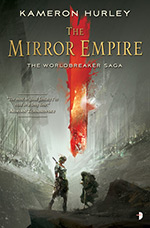 If you love grimdark fantasy, but hate that it’s so often dominated by male characters, then Kameron Hurley’s The Mirror Empire is for you. The women in Hurley’s world are the soldiers and rulers, taking charge even as they work to slaughter each other. One of our favorite characters is Zezili Hasario, the Captain General of the Empress of Dorinah. Zezili is definitely a complex woman: she’s abusive to her husband (as is the custom for many Dorinah), and often uses her mixed heritage to unnerve others. Her world, already complicated, becomes even more so when she must choose between the eradication of her father’s people or loyalty to her alien Empress.
If you love grimdark fantasy, but hate that it’s so often dominated by male characters, then Kameron Hurley’s The Mirror Empire is for you. The women in Hurley’s world are the soldiers and rulers, taking charge even as they work to slaughter each other. One of our favorite characters is Zezili Hasario, the Captain General of the Empress of Dorinah. Zezili is definitely a complex woman: she’s abusive to her husband (as is the custom for many Dorinah), and often uses her mixed heritage to unnerve others. Her world, already complicated, becomes even more so when she must choose between the eradication of her father’s people or loyalty to her alien Empress.
Honor Harrington from On Basilisk Station by David Weber
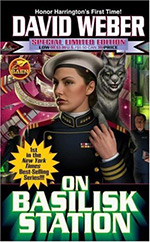 When one thinks of female captains in science fiction, Honor Harrington is often the first name on the list. Debuting in David Weber’s 1993 novel On Basilisk Station, the newly graduated Honor takes command of her first ship, only to fail in her first outing. That failure leads to punishment duty: picket duty at the remote Basilisk Station. There, with hard work and a clever use of resources, Honor and her crew not only succeed in defending the station, but uncover and defuse a massive plot to invade the Star Kingdom of Manticore. From her very first posting and through the subsequent 13 novels (with a 14th coming this year), Honor Harrington embodies everything we want in our female captains: she’s resourceful, resilient, intelligent, and overall, a badass.
When one thinks of female captains in science fiction, Honor Harrington is often the first name on the list. Debuting in David Weber’s 1993 novel On Basilisk Station, the newly graduated Honor takes command of her first ship, only to fail in her first outing. That failure leads to punishment duty: picket duty at the remote Basilisk Station. There, with hard work and a clever use of resources, Honor and her crew not only succeed in defending the station, but uncover and defuse a massive plot to invade the Star Kingdom of Manticore. From her very first posting and through the subsequent 13 novels (with a 14th coming this year), Honor Harrington embodies everything we want in our female captains: she’s resourceful, resilient, intelligent, and overall, a badass.
Zamira Drakasha from Red Seas Under Red Skies by Scott Lynch
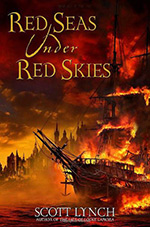 While the focus of the second book in Lynch’s Gentlemen Bastards series is, of course, on our heroes Locke Lamora and Jean Tannen, our favorite character was without a doubt Zamira Drakasha, the middle-aged, black mother of two who ran her murderous pirate crew with an iron fist. She could leap between ships, wield her sabers with deadly accuracy, and cuddle her kids at the end of a hard day of looting. We would absolutely join the scrub watch and do whatever labor was demanded of us if only we got to join the crew of the Poison Orchid!
While the focus of the second book in Lynch’s Gentlemen Bastards series is, of course, on our heroes Locke Lamora and Jean Tannen, our favorite character was without a doubt Zamira Drakasha, the middle-aged, black mother of two who ran her murderous pirate crew with an iron fist. She could leap between ships, wield her sabers with deadly accuracy, and cuddle her kids at the end of a hard day of looting. We would absolutely join the scrub watch and do whatever labor was demanded of us if only we got to join the crew of the Poison Orchid!
Lila Bard from the Shades of Magic Series by V. E. Schwab
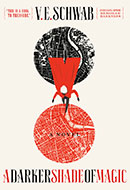 Lila Bard was born to be a pirate. She knows it, deep down in her bones. Even after she starts going on magical adventures with Kell, she never sets aside this dream. Her first thought after meeting privateer Alucard Emery is, naturally, to steal his ship. Instead, she chooses to join his crew by becoming their thief—after killing the original crew thief, of course—and Alucard teaches her about the world of Red London. No matter how difficult the path, or how many obstacles kept getting in her way, Lila Bard knew she was meant to be a pirate. And she won’t let anything stand in the way of fulfilling her dreams.
Lila Bard was born to be a pirate. She knows it, deep down in her bones. Even after she starts going on magical adventures with Kell, she never sets aside this dream. Her first thought after meeting privateer Alucard Emery is, naturally, to steal his ship. Instead, she chooses to join his crew by becoming their thief—after killing the original crew thief, of course—and Alucard teaches her about the world of Red London. No matter how difficult the path, or how many obstacles kept getting in her way, Lila Bard knew she was meant to be a pirate. And she won’t let anything stand in the way of fulfilling her dreams.
Bonus Novella:
Captain Ann-Marie from The Black God’s Drums by P. Djèlí Clark
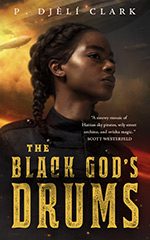 This one’s a bonus title because it doesn’t come out until August, but we think you’ll love it. In an alternate America caught up in a Civil War that ended with a divided country, an independent New Orleans sits uneasily between North and South. Haitian airship Captain Ann-Marie and orphaned street urchin Creeper must work together to save the world from a mysterious weapon called The Black God’s Drums. Between sky pirates, powerful and cagey African Gods, and a pair of very interesting nuns, Clark’s debut novella will draw you in, and you won’t want to come back to the real world.
This one’s a bonus title because it doesn’t come out until August, but we think you’ll love it. In an alternate America caught up in a Civil War that ended with a divided country, an independent New Orleans sits uneasily between North and South. Haitian airship Captain Ann-Marie and orphaned street urchin Creeper must work together to save the world from a mysterious weapon called The Black God’s Drums. Between sky pirates, powerful and cagey African Gods, and a pair of very interesting nuns, Clark’s debut novella will draw you in, and you won’t want to come back to the real world.

